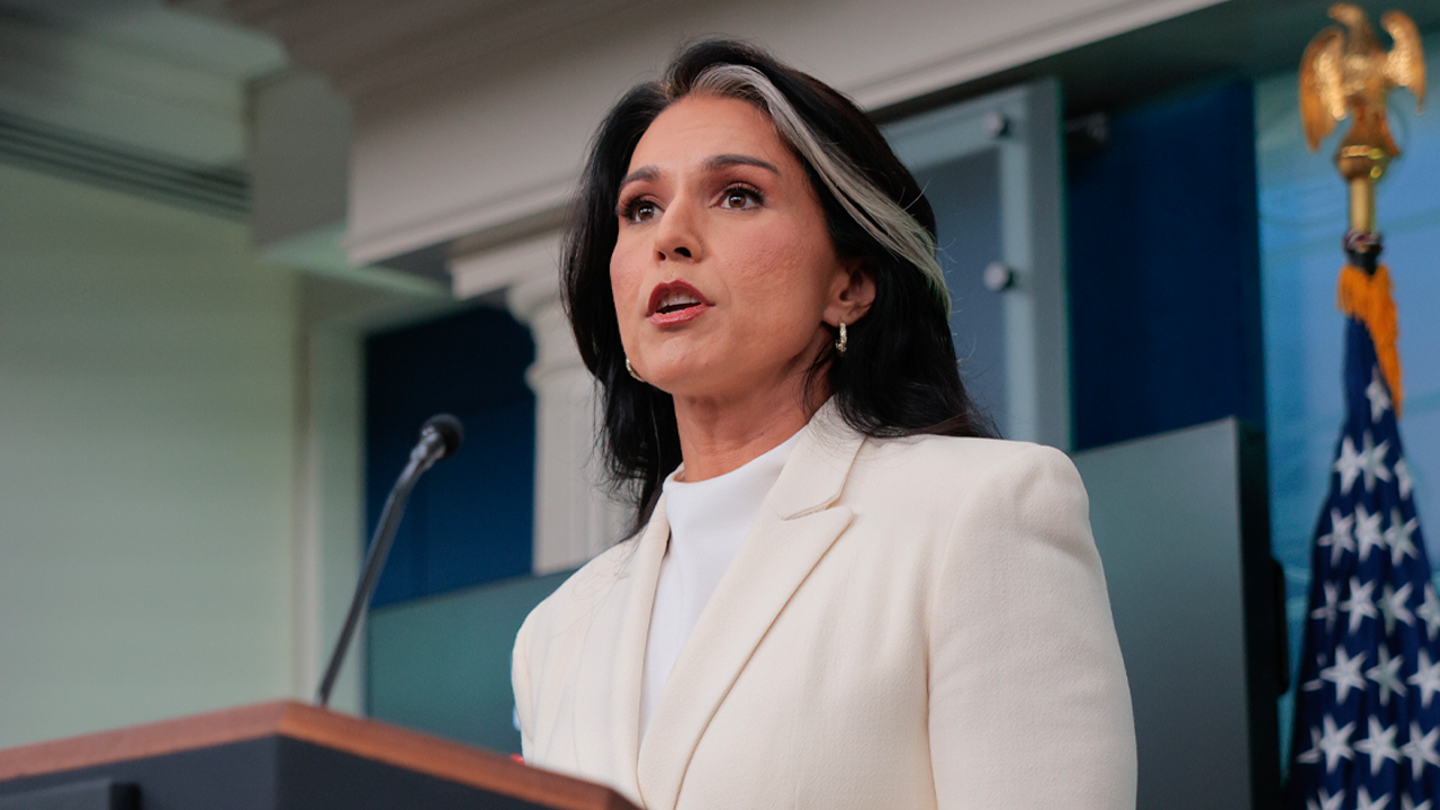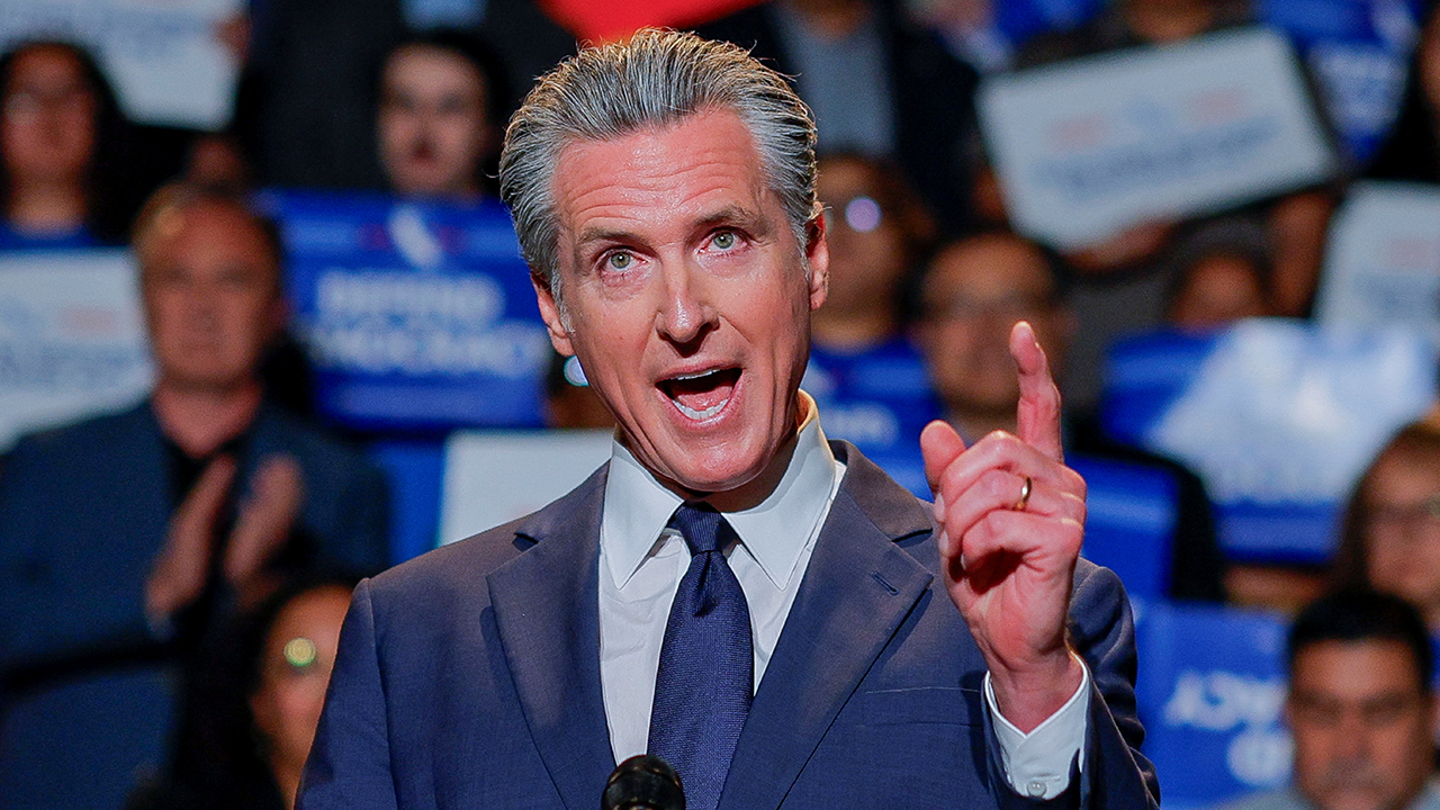
Trump administration expands ‘good moral character’ requirement to become naturalized citizen
Entities mentioned:
- Trump administration: Control, Security, Righteousness
- US Citizenship and Immigration Services: Duty, Control, Security
- Department of Homeland Security: Security, Control, Duty
- Matthew J. Tragesser: Professional pride, Duty, Righteousness
- Emily Ryo: Professional pride, Curiosity, Wariness
- Susan Ramos: Professional pride, Justice, Wariness
- Kathrin Mautino: Professional pride, Justice, Wariness
- US State Department: Security, Control, Duty
Article Assessment:
Credibility Score: 75/100
Bias Rating: 55/100 (Center)
Sentiment Score: 35/100
Authoritarianism Risk: 65/100 (Authoritarian Tendencies)
Bias Analysis:
The article presents multiple perspectives, including government officials and immigration lawyers, providing a relatively balanced view. However, there's a slight emphasis on critical viewpoints of the policy change, which nudges it slightly left of center.
Key metric: Immigration and Naturalization Rates
As a social scientist, I analyze that this policy change by the Trump administration significantly impacts the naturalization process for immigrants seeking US citizenship. The expanded 'good moral character' requirement introduces greater subjectivity and uncertainty into the assessment process. This may lead to decreased naturalization rates, as applicants face additional scrutiny and potential barriers. The policy shift reflects a more restrictive approach to immigration, emphasizing stringent vetting and ideological alignment with American values. This change could disproportionately affect certain immigrant groups and potentially reduce the diversity of new citizens. The long-term implications may include a slowdown in naturalization rates, changes in the demographic composition of new citizens, and increased administrative burden on the immigration system.

Judge rules that some Texas schools don’t have to display Ten Commandments in classrooms
Entities mentioned:
- Judge Fred Biery: Justice, Righteousness, Duty
- Texas school districts: Obligation, Wariness, Self-preservation
- Texas state legislature: Control, Righteousness, Influence
- Texas families (plaintiffs): Freedom, Justice, Self-respect
- Gov. Greg Abbott: Control, Righteousness, Influence
- Tommy Buser-Clancy (ACLU): Justice, Freedom, Duty
- Ken Paxton: Righteousness, Determination, Influence
Article Assessment:
Credibility Score: 75/100
Bias Rating: 45/100 (Center)
Sentiment Score: 55/100
Authoritarianism Risk: 25/100 (Generally Democratic)
Bias Analysis:
The article presents multiple perspectives, including the judge's ruling, plaintiffs' arguments, and the state's defense. While it gives more space to arguments against the law, it also includes the opposing view from the Texas Attorney General.
Key metric: First Amendment Protections
As a social scientist, I analyze that this ruling significantly impacts First Amendment protections in public schools. The judge's decision to block the enforcement of the Ten Commandments display law in several Texas school districts upholds the separation of church and state. This ruling sets a precedent that could influence similar cases in other states, potentially strengthening First Amendment protections nationwide. The decision reflects a tension between religious conservative efforts to introduce religious symbols in public spaces and the constitutional principle of religious neutrality in government institutions. The judge's detailed and occasionally humorous opinion suggests a strong stance against what he perceives as unconstitutional religious influence in public education, which could have far-reaching implications for similar legislative efforts in other states.

Trump escalates attacks against Smithsonian museums, says there’s too much focus on ‘how bad slavery was’
Entities mentioned:
- Donald Trump: Control, Power, Influence
- Smithsonian Institution: Professional pride, Duty, Curiosity
- Lonnie Bunch III: Professional pride, Duty, Education
- Janet Marstine: Professional pride, Duty, Wariness
- JD Vance: Loyalty, Power, Influence
- Lindsey Halligan: Loyalty, Power, Control
- Jillian Michaels: Righteousness, Indignation, Influence
Article Assessment:
Credibility Score: 75/100
Bias Rating: 45/100 (Center)
Sentiment Score: 35/100
Authoritarianism Risk: 65/100 (Authoritarian Tendencies)
Bias Analysis:
The article presents multiple viewpoints and includes direct quotes from various sources. While it gives more space to criticisms of Trump's actions, it also includes perspectives supporting his stance, maintaining a relatively balanced approach.
Key metric: Cultural Cohesion
As a social scientist, I analyze that this article highlights a significant conflict between political ideology and historical education in the United States. The attempt to control narrative in cultural institutions like the Smithsonian represents a potential shift in how national history is presented and understood. This could have far-reaching effects on cultural cohesion, potentially polarizing public opinion on historical interpretations and impacting national identity formation. The administration's actions suggest an attempt to reshape collective memory, which could lead to a more fragmented understanding of American history across different segments of society. This conflict between political directives and academic/curatorial expertise also raises questions about the independence of cultural institutions and their role in society.

Vance, White House blast 'crazy communists' protesting DC clean-up, terrorizing locals: 'Stupid White hippies'
Entities mentioned:
- JD Vance: Righteousness, Security, Control
- Donald Trump: Power, Control, Legacy
- Pete Hegseth: Loyalty, Duty, Security
- Stephen Miller: Control, Righteousness, Moral outrage
- Protesters: Moral outrage, Justice, Freedom
- Trump Administration: Control, Security, Power
Article Assessment:
Credibility Score: 55/100
Bias Rating: 75/100 (Lean Right)
Sentiment Score: 30/100
Authoritarianism Risk: 70/100 (Authoritarian Tendencies)
Bias Analysis:
The article leans right, evidenced by its uncritical presentation of administration claims and use of loaded language against protesters. It primarily presents the administration's perspective without substantial counterbalancing views or fact-checking.
Key metric: Violent Crime Rate
As a social scientist, I analyze that this article highlights a contentious approach to addressing crime and homelessness in Washington D.C. The Trump administration's forceful intervention, while claiming to reduce crime, raises questions about civil liberties and the appropriate balance between security and individual rights. The rhetoric used by officials, particularly Miller, is divisive and potentially inflammatory, characterizing protesters as disconnected from the community and labeling them with politically charged terms. This approach may exacerbate social tensions and polarization. The reported 35% drop in violent crime over nine days is a significant claim that would require careful verification and context to fully assess its validity and sustainability.

Duffy’s DOT accuses Biden, Buttigieg of inflating air traffic controller pipeline: ‘Juiced the numbers’
Entities mentioned:
- Trump administration's Department of Transportation: Professional pride, Security, Control
- Biden administration: Ambition, Recognition, Influence
- Pete Buttigieg: Self-preservation, Competitive spirit, Righteousness
- Sean Duffy: Duty, Professional pride, Security
- Federal Aviation Administration (FAA): Professional pride, Safety, Duty
Article Assessment:
Credibility Score: 65/100
Bias Rating: 70/100 (Lean Right)
Sentiment Score: 35/100
Authoritarianism Risk: 40/100 (Generally Democratic)
Bias Analysis:
The article leans right, evidenced by more extensive quotes from Trump administration officials and a more critical tone towards the Biden administration's actions. While it includes some rebuttals from Buttigieg's team, these are presented more defensively.
Key metric: Air Traffic Controller Staffing Levels
As a social scientist, I analyze that this article highlights a contentious issue in air traffic controller recruitment and training standards between the Trump and Biden administrations. The Trump administration claims to be raising standards to improve completion rates at the training academy, while accusing the Biden administration of lowering standards to inflate recruitment numbers. This dispute impacts air traffic controller staffing levels, a critical component of air travel safety and efficiency. The conflicting claims and changes in qualification criteria suggest a politicization of what should be a strictly professional and safety-oriented process. This situation may lead to public uncertainty about the quality and sufficiency of air traffic control staffing, potentially affecting confidence in air travel safety.

Pentagon officials blast Washington Post for putting 'lives at risk' with report on Pete Hegseth’s security
Entities mentioned:
- Pentagon officials: Security, Indignation, Professional pride
- Washington Post: Recognition, Influence, Curiosity
- Pete Hegseth: Self-preservation, Security, Duty
- Army Criminal Investigation Division (CID): Duty, Security, Professional pride
- Kingsley Wilson: Loyalty, Security, Indignation
- Sean Parnell: Indignation, Security, Loyalty
- Dan Lamothe: Professional pride, Righteousness, Determination
- Rep. Anna Paulina Luna: Moral outrage, Justice, Security
Article Assessment:
Credibility Score: 70/100
Bias Rating: 65/100 (Lean Right)
Sentiment Score: 25/100
Authoritarianism Risk: 55/100 (Mixed/Neutral)
Bias Analysis:
The article leans right, evidenced by its focus on Pentagon officials' criticisms of the Washington Post and inclusion of multiple conservative voices. While it includes the Post's perspective, it gives more space and emphasis to those condemning the report.
Key metric: National Security Perception
As a social scientist, I analyze that this article highlights a significant tension between press freedom and national security concerns. The Washington Post's reporting on Secretary Hegseth's security details has sparked outrage among Pentagon officials, who claim it jeopardizes the safety of Hegseth and his family. This conflict underscores the delicate balance between transparency in government operations and the need to protect sensitive information. The public reaction, particularly from government officials, suggests a growing concern about the vulnerability of high-ranking officials in an increasingly polarized political climate. This incident may lead to increased scrutiny of media practices regarding reporting on security measures and could potentially influence future policies on information sharing between government agencies and the press. The strong reactions from multiple Pentagon officials indicate a unified stance on prioritizing security over press freedom in this instance, which could have implications for future media-government relations and public perception of national security priorities.

US announces more sanctions on ICC officials for targeting Americans, Israelis
Entities mentioned:
- International Criminal Court (ICC): Justice, Influence, Duty
- United States: Self-preservation, Power, Control
- Israel: Self-preservation, Security, Power
- Marco Rubio: Righteousness, Patriotism, Power
- Donald Trump: Power, Control, Influence
Article Assessment:
Credibility Score: 75/100
Bias Rating: 55/100 (Center)
Sentiment Score: 35/100
Authoritarianism Risk: 65/100 (Authoritarian Tendencies)
Bias Analysis:
The article presents both US and ICC perspectives, quoting officials from both sides. However, it gives slightly more space to the US position and reasoning behind the sanctions, suggesting a slight lean towards the US viewpoint.
Key metric: International Relations and Diplomacy
As a social scientist, I analyze that this move by the United States to sanction ICC officials significantly impacts international relations and diplomacy. The sanctions represent a strong pushback against international jurisdiction over US and Israeli nationals, potentially weakening the ICC's global influence and effectiveness. This action may strain relationships with allies, particularly those who are ICC members, and could be seen as the US prioritizing its sovereignty over international cooperation in matters of justice. The move also risks undermining the broader system of international law and could encourage other nations to similarly reject international court decisions they disagree with, potentially leading to a more fragmented global legal order.

Gabbard launches 'ODNI 2.0,' with plan to cut workforce by 40%
Entities mentioned:
- Tulsi Gabbard: Determination, Righteousness, Professional pride
- ODNI (Office of the Director of National Intelligence): Efficiency, Security, Duty
- President Trump: Leadership, Control, Security
- Intelligence Community: Duty, Security, Professional pride
Article Assessment:
Credibility Score: 65/100
Bias Rating: 70/100 (Lean Right)
Sentiment Score: 65/100
Authoritarianism Risk: 55/100 (Mixed/Neutral)
Bias Analysis:
The article leans right, presenting the ODNI restructuring in a positive light and emphasizing Trump's leadership. It primarily presents the administration's perspective without significant counterpoints or critical analysis.
Key metric: Government Efficiency and National Security
As a social scientist, I analyze that this article describes a significant restructuring of the Office of the Director of National Intelligence (ODNI) under the leadership of Tulsi Gabbard. The transformation, dubbed 'ODNI 2.0', aims to address issues of inefficiency, politicization, and abuse within the intelligence community. The proposed changes, including a 40% workforce reduction and $700 million in annual savings, represent a major shift in how U.S. intelligence operations are conducted. This restructuring could have substantial impacts on national security processes, government spending, and the overall effectiveness of intelligence gathering and dissemination. The focus on eliminating politicization and rebuilding trust suggests an attempt to address perceived failures in the intelligence community's recent history. However, such dramatic changes may also lead to short-term disruptions in intelligence operations and potential resistance from within the organization.

Newsom-style redistricting efforts critiqued by California Democrats as recently as July, statements show
Entities mentioned:
- Gov. Gavin Newsom: Power, Control, Ambition
- California Democrats: Power, Control, Self-preservation
- California Republicans: Justice, Righteousness, Self-preservation
- Citizens' Redistricting Commission: Duty, Fairness, Transparency
- Steve Hilton: Justice, Competitive spirit, Ambition
Article Assessment:
Credibility Score: 75/100
Bias Rating: 65/100 (Lean Right)
Sentiment Score: 35/100
Authoritarianism Risk: 55/100 (Mixed/Neutral)
Bias Analysis:
The article leans slightly right, evidenced by its focus on Republican critiques and extensive quoting of Democratic inconsistencies. While it presents factual information, the framing appears to favor the Republican perspective on the issue.
Key metric: Electoral Integrity Index
As a social scientist, I analyze that this article highlights a significant shift in California Democrats' stance on redistricting, potentially impacting the state's Electoral Integrity Index. The proposed change from an independent commission to politician-led redistricting could be seen as a move to consolidate power, contradicting previous statements supporting independent commissions. This shift raises concerns about the fairness and transparency of the electoral process, potentially eroding public trust in democratic institutions. The Republicans' pushback and the citing of Democrats' past statements supporting independent commissions add a layer of political conflict and accountability to the issue. The involvement of high-profile figures like Gov. Newsom and the potential for legal challenges further underscore the significance of this development for California's electoral system and its broader implications for democratic processes.

'Full of s---': New York Republican accuses state Dems of hypocrisy in redistricting push
Entities mentioned:
- Rep. Mike Lawler: Justice, Competitive spirit, Righteousness
- New York Democrats: Power, Control, Ambition
- Gov. Kathy Hochul: Power, Influence, Self-preservation
- Rep. Hakeem Jeffries: Power, Influence, Competitive spirit
- Sen. Chuck Schumer: Power, Influence, Competitive spirit
- Texas Republicans: Power, Control, Self-preservation
- Donald Trump: Power, Control, Influence
- Democratic Congressional Campaign Committee: Power, Competitive spirit, Influence
Article Assessment:
Credibility Score: 70/100
Bias Rating: 55/100 (Center)
Sentiment Score: 35/100
Authoritarianism Risk: 45/100 (Mixed/Neutral)
Bias Analysis:
The article presents views from both Republican and Democratic perspectives, including direct quotes. However, it gives more space to Rep. Lawler's criticisms of Democrats, suggesting a slight rightward lean.
Key metric: Electoral Competitiveness
As a social scientist, I analyze that this article highlights the ongoing battle over redistricting in the United States, which significantly impacts electoral competitiveness. The debate centers on the actions of both Democratic and Republican-led states in redrawing congressional maps to gain partisan advantage. Rep. Lawler's criticism of New York Democrats for their redistricting efforts, while also acknowledging similar actions in Republican-led states like Texas, underscores the widespread nature of this practice. This redistricting war poses a threat to electoral competitiveness by creating more partisan-leaning districts, potentially reducing the number of competitive races and increasing political polarization. Lawler's proposed legislation to ban partisan gerrymandering nationwide and implement other reforms like term limits could potentially address these issues, but faces significant political hurdles. The article reveals a complex interplay of power dynamics, partisan interests, and concerns about fair representation, all of which have profound implications for the health of American democracy and the competitiveness of its elections.